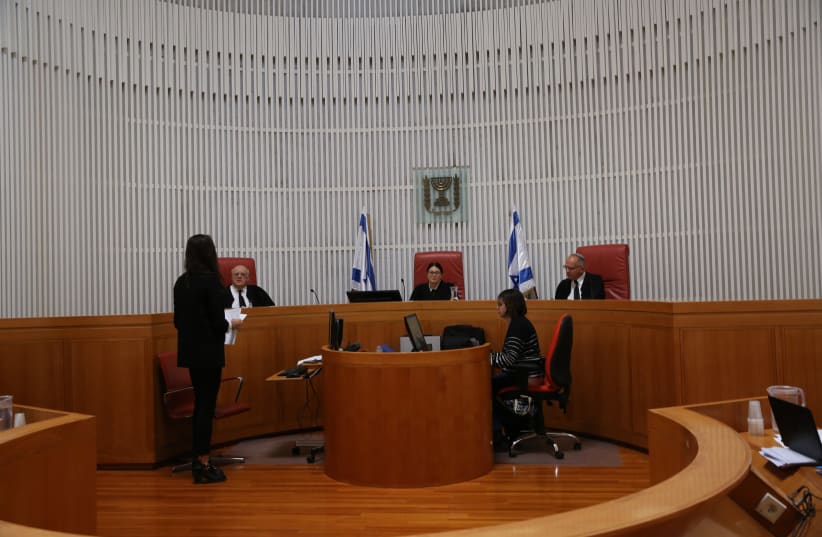The Reform and Conservative (Masorti Movement in Israel) movements on Sunday asked the High Court of Justice not to delay a decision on petitions regarding the legal status of non-Orthodox conversions in Israel.
The development may spark a political crisis as the government is forced to contend again with the sensitive issue of who is a Jew in the State of Israel.
The petitions, the most important of which was filed in 2005, demand in principle that converts who converted to Judaism through the Reform and Masorti movements in Israel but are not Israeli citizens be granted citizenship under the law of return.
This would amount to state recognition of the validity of non-Orthodox conversions, although it would not require the Chief Rabbinate to recognize them. It would grant citizenship to several converts on whose behalf the petitions were originally filed a decade and a half ago.
The Reform and Masorti movements said in their submission to the court on Sunday that government proposals to bridge the gaps between them and the haredi political parties, Shas and United Torah Judaism, could not be implemented.
The government was not seeking to make progress on the issue, they said, adding that its ongoing requests for delays were designed to stop the court from ruling on the matter.
The government has requested a new postponement of any decision.
The state was engaging in “intentional foot-dragging,” said Dr. Yizhar Hess, director of the Masorti Movement in Israel. The same tactics have been used over the past 15 years to claim that the government is just about to formulate a solution, he said.
“I hope that this time the court’s patience will run out,” Hess said. “Such a delay of justice is unthinkable. The State of Israel is the national home of the Jewish people, but it is inclined to forget this every time non-Orthodox Jews remind it that there is more than one way to be a Jew.”
Rabbi Gilad Kariv, director of the Reform Movement in Israel, said he expected the court to publish its verdict without delay.
“The opposition of the state to full recognition of Reform and Conservative concessions stems only from the capitulation to the religious establishment and the ultra-Orthodox political parties and the perpetuation of discrimination against these denominations,” he said.
Over the past three years, the progressive Jewish denominations and the haredi political parties have agreed to request postponements from the High Court to allow the government to come up with a compromise agreement.
Shas and UTJ are opposed to state recognition of non-Orthodox conversions. In 2017, they threatened to pass legislation revoking any legal status such conversions have when it appeared the court was ready to issue a ruling in favor of the petitions.
Prime Minister Benjamin Netanyahu appointed former justice minister Moshe Nissim to formulate new proposals to resolve the conversion conundrum, which he did in June 2018.
But his plan was rejected by all major players – the haredim, hard-line and moderate religious-Zionists and the progressive movements – as either giving too much control over conversion to the Chief Rabbinate or not enough.
The deadline for requesting a new postponement was Sunday.
Interior Minister Arye Deri (Shas) and senior UTJ MK Moshe Gafni declined to comment on the development.
